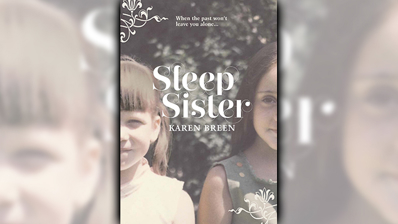Stephanie Jones: Book Review - Sleep Sister by Karen Breen
- Publish date
- Friday, 20 Mar 2015, 2:08PM

You get the feeling, in the midst of the engrossing dissection of family history, memory and grief that is New Zealand writer Karen Breen’s debut novel Sleep Sister, that Breen’s entire professional life has in some way been in service of the book’s creation. A former journalist, editor and television producer in Auckland and London who went on to complete a Master’s degree in creative writing, Breen brings to her work the accumulation of years of wisdom: how humans express fear and react to loss, the blind spots that exist in every family.
As the cover blurb reveals, a tragic event in 1979 presages an explosive 1987 for sisters Gilly and Marina, though the plot of Sleep Sister does not unfold in a linear way. Precisely what happens and how it affects the Duggan family is revealed only gradually as the story progresses, Breen leaping between timeframes and characters, keeping the reader at once unsettled and intrigued.
The Duggans, in fact, had once been the Fables, the family renaming and remaking itself upon mother Lynette’s marriage to Brian, which produces son Davy. (The girls’ father is utterly absent, even from the family discourse, for much of their childhood – his reappearance is another unholy event, a kind of reversal of death that undermines the cobbled-together family.)
Lynette, desperate for love and betterment, harbours fears to which her daughters are oblivious; that the family will fail to blend as it should, that Davy will ‘belong’ in a way that the girls, the product of another man, cannot. Most of all Breen instils Lynette with earnestness, expressed in a wish that the family will be “rich and have everything they’ve always wanted. This time, she has backed a winner.” Later, the couple’s flailing efforts to establish themselves in a new social class inspires a wry sympathy. Reinvention will not come in the way Lynette had intended.
In thematic terms, Sleep Sister echoes elements of fellow Kiwi novelist Paddy Richardson’s superb Hunting Blind, which more directly explores the aftermath of the death of a child. Sleep Sister, however, is less suspenseful than ruminative, encompassing sibling bonding and rivalry, the dual magnetic pulls of escape and homecoming, memory loss as a consequence of grief and age.
Breen acutely observes human behaviour at different stages of life; the girls’ carefreeness replaced by wariness and premature acuity as to the many terrible things that can befall a child, the effect on their grandmother Ivy of her husband’s dementia. Ivy’s musing on memory contains the full weight of Breen’s incisive, empathetic narrative: there is a lot Ivy would like to forget as she looks back on her life, but with what, the woman wonders, would she replace the bad memories?
Quite aside from being a compelling story well told, Sleep Sister is lovely to behold, the product of Eunoia Publishing, a collective of writers, editors and others who believe that books should be works of art in every way. Sleep Sister is gorgeously designed, slim yet weighty, and while the text will be a little too small for the comfort of some, the lavish font that opens each chapter mirrors the beauty of Breen’s prose.
Take your Radio, Podcasts and Music with you

